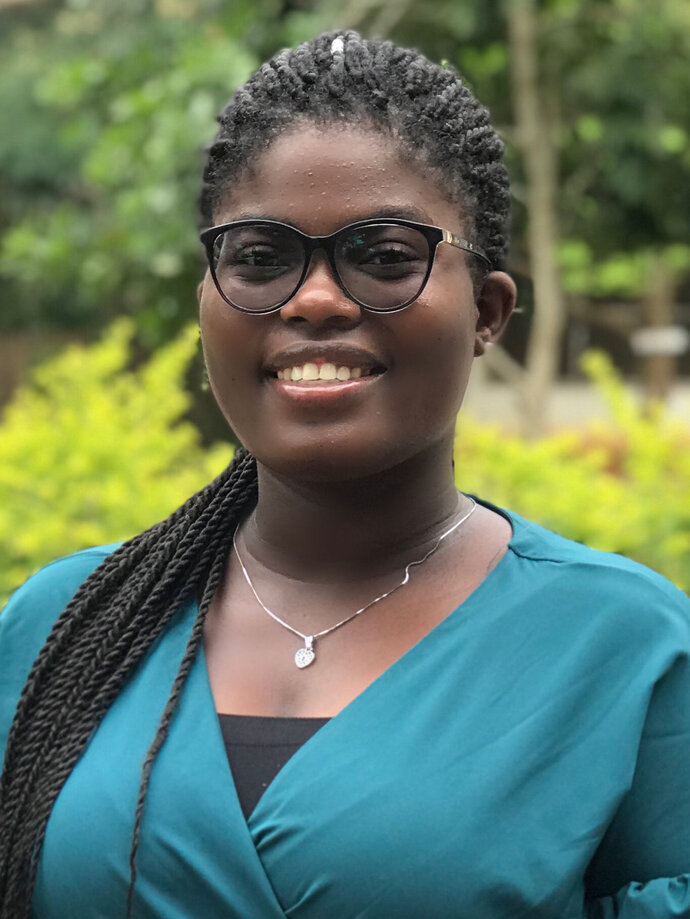Priscilla Opare
I have been a part of a Gnatwork Community Call project since March 2020 as a research assistant at the University of Cape Coast (UCC), Ghana, together with Dr. Marion England (The Pirbright Institute) and Dr. Godwin Kwakye-Nuako (UCC). The project which aims to validate a standard trap design against explicit estimates of human biting rate for biting midges and sandflies in a region of Ghana endemic for leishmaniasis, forms part of ongoing investigations that implicate biting midges as putative vectors of leishmaniasis in Ghana.
Leishmania parasites have long been known to be transmitted by female phlebotomine sand fly vectors. However, in recent laboratory models of infection, the new species of Leishmania belonging to the Leishmania (Mundinia) enriettii complex found in Ghana does not survive in sand flies but rather, multiplies and develops successfully in biting midges (Culicoides).
The Culicoides fauna of Ghana remains poorly characterised with very little information on their host and feeding preferences. Currently, I am investigating the bloodmeal preferences of Culicoides found in the Leishmania-endemic communities in Ghana. The findings from this study could reveal the natural hosts of Culicoides in the area, and identify natural reservoir hosts of the infectious agent.
Since research on leishmaniasis in Ghana is still in its early stages, I plan on extending my research into postgraduate training where I would investigate the gut microbiome of Culicoides in Ghana and their interaction with the parasite, as well as the immunology of this novel species of Leishmania.
